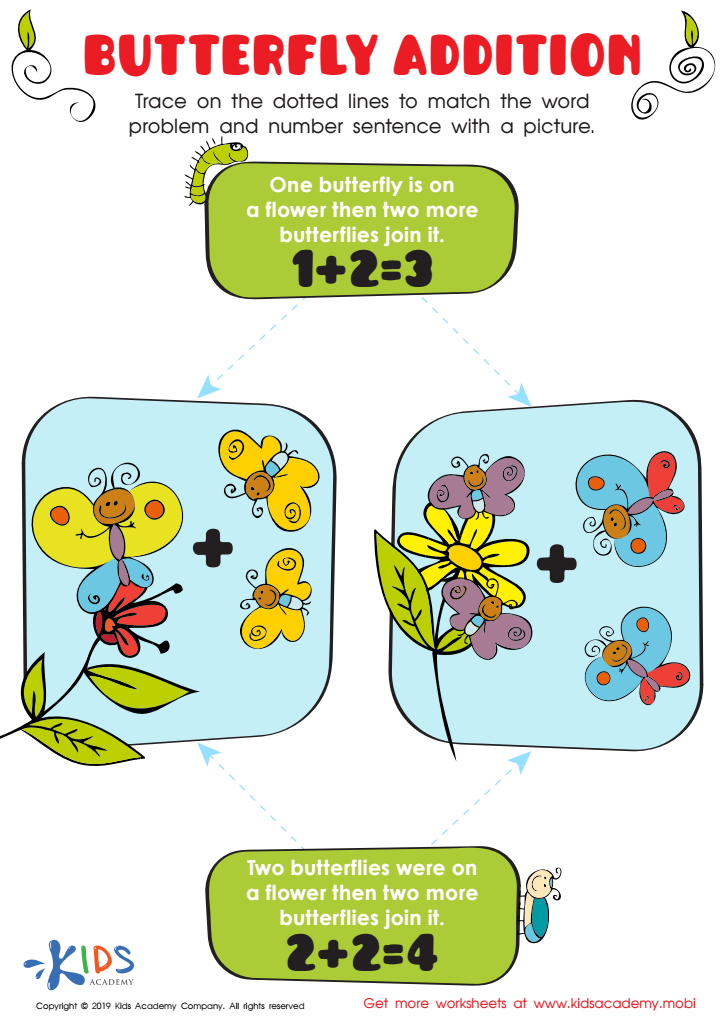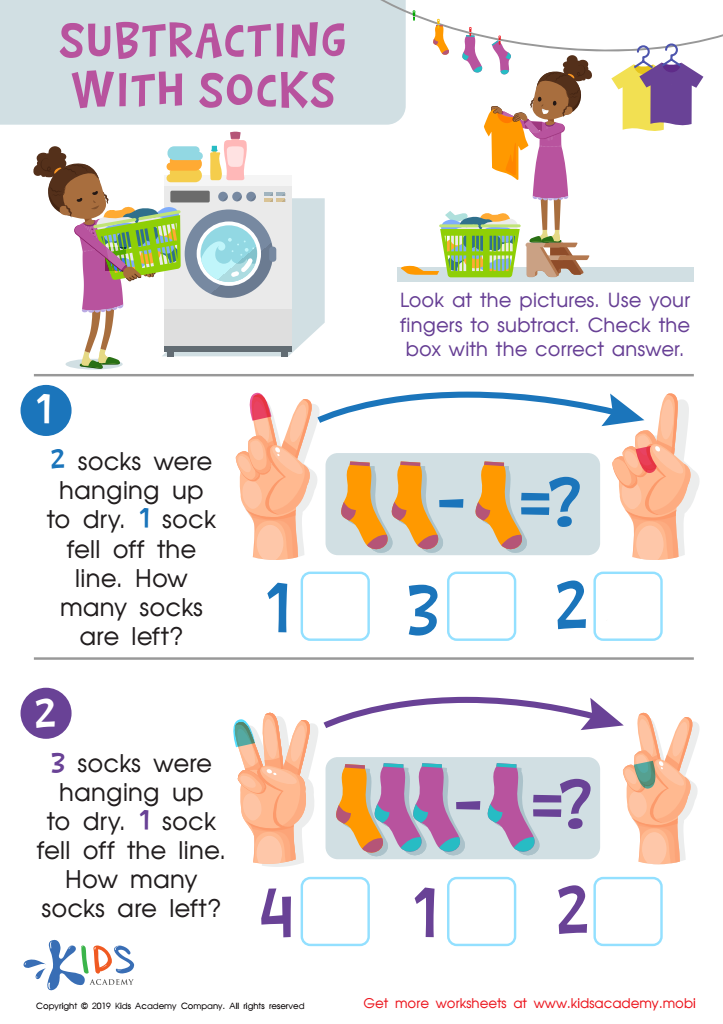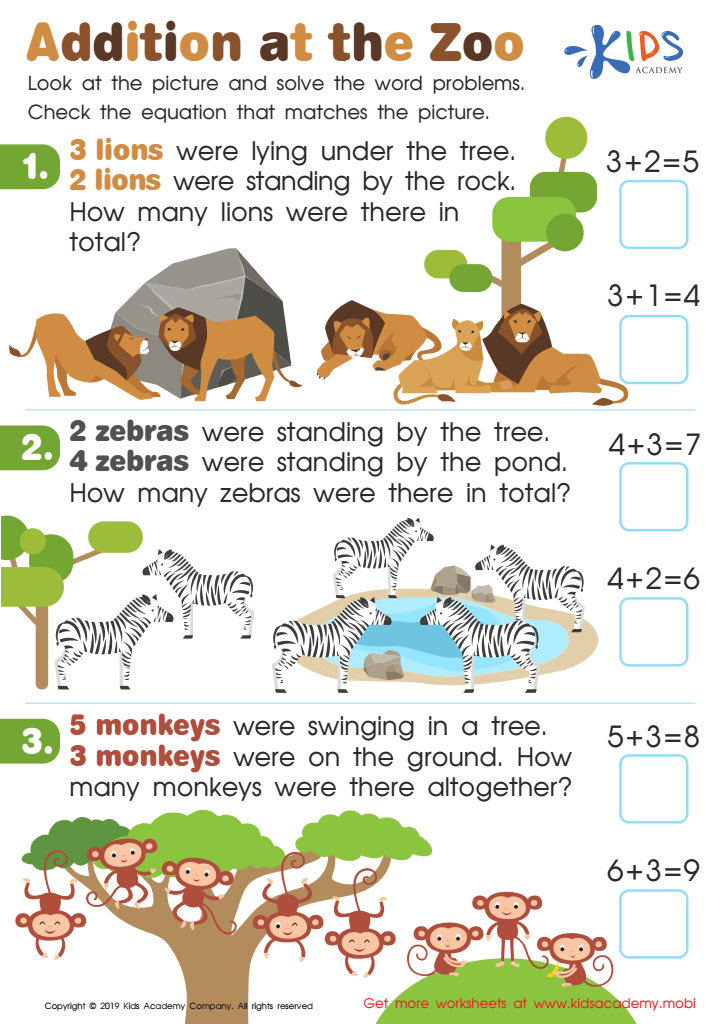Visual Learning Easy Word Problems Worksheets for 8-Year-Olds
3 filtered results
-
From - To
Boost your child's math skills with our Visual Learning Easy Word Problems Worksheets, designed specifically for 8-year-olds. These engaging worksheets utilize pictures and visual aids to simplify word problems, making math fun and accessible. Perfect for young learners, our worksheets encourage critical thinking and enhance problem-solving abilities. Each activity is carefully crafted to align with educational standards, ensuring your child grasps essential math concepts while enjoying the learning process. Ideal for classroom use or at-home practice, these worksheets provide a solid foundation in math through colorful, kid-friendly designs. Help your child excel in math with our interactive, visually inspired educational tools.


Butterfly Addition Worksheet


Subtracting Socks Worksheet


Addition at the Zoo Worksheet
Caring about Visual Learning Easy Word Problems for 8-year-olds is crucial for both parents and teachers because it supports foundational math skills essential for future academic success. Visual learning involves using images, diagrams, and color-coding to help children understand and solve word problems, which connects mathematical concepts with real-world scenarios. This approach caters to different learning styles, especially for visual learners who might struggle with traditional methods.
Early exposure instills confidence and encourages a positive attitude towards math. When children see math as a set of interesting and solvable problems, rather than abstract numbers, they are more likely to engage and persist. Practical visual problems hone critical thinking and problem-solving skills, building a child's ability to interpret data, analyze information, and draw logical conclusions.
Additionally, collaborating on visual word problems can strengthen parent-child or teacher-student relationships. It promotes an interactive learning environment where children feel supported. Parents can participate in their child’s educational journey, reinforcing skills at home, while teachers can tailor instructions to meet individual needs.
Ultimately, visual learning in word problems equips children with vital skills, enhances understanding, fosters positive attitudes towards math, and strengthens collaborative teaching and learning efforts. Investing in such resources will prepare children for a more complex mathematical landscape in the future.
 Assign to My Students
Assign to My Students
















